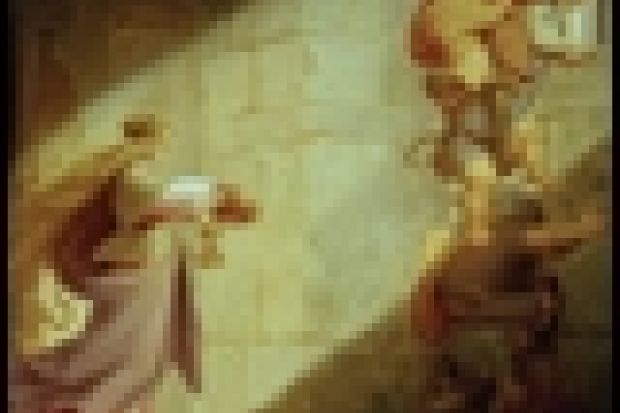In her notes to Hélène Cixous' newly translated Eve Escapes, Peggy Kamuf observes that the original French title, Ève s'évade, might have been more readily rendered in English as "Eve's Evasion". "Evasion", though, falls short of the more desperate sense of struggle and flight expressed in the book. Escape, as Cixous explains to her terminally ill mother, Ève, is the stuff of the dreams of the incarcerated, tacitly drawing a likeness between the prisoner depicted in Moritz von Schwind's Romantic painting, The Prisoner's Dream (1836), upon which they gaze, and her mother's increasingly immobilised condition. Yet what becomes clear over the course of the book is the unexpected ways in which the experiences of senescence and sickness transform Ève's existence beyond her daughter's understanding. In the book, Cixous' feelings of guilt and abandonment are outstripped only by her sense of the increasing intensity of her mother's rapidly attenuating life. This is a philosophical and, at times, moving account of a daughter's difficult transition from being cared for to becoming a caregiver, but it is also a troubling book that betrays the intrusiveness of any attempt to articulate the absolute imminence of death.
The von Schwind painting, an odd, hazily golden image that wraps around the covers of the book, becomes the object of a striking conversation between the two women. Heads bent over a reproduction, they examine the image almost exactly as Freud did during his 1916 lecture on Kinderträume (children's dreams). It is a strange moment, uncanny even, for Cixous, where Freudian thoughts of the law of the father are crowded by other thoughts of the imminent death of her mother. The book is full of these different cross-currents, philosophy merging with biography, psychoanalysis with self-reflection, in a jostling of forms, disciplines and genres. In this regard, the book is characteristically Cixousian: creative, curious and challenging. Her 1976 work Portrait de Dora, which rewrote Freud's most famous case study as a play, presented in its formal revisioning an idea of the heterogeneity of any given narrative, position or theory. The tessellation of voices, polyphony and painstaking wordplay form part of the fluid traversals of Cixous' familiar style. In this book as with others, the author, with varying degrees of success, performs her philosophical deconstructive thinking, labouring over the signifier, each tremulous word slipping into another, signalling all the time a multitude of alternatives and other associations. Perhaps what jars in this particular project are the shifts in register, from allusive and idiosyncratic deconstructive writing to the prosaic observations of daily life, the rapid leaps from the vaguely quixotic to the resolutely quotidian - we slip from Aeneas to Ève Cixous struggling to adjust to a cane. At times, the dreamy, mythopoeic prose feels uncomfortably elevated. There are moments when intimacy submits to something uncomfortably intrusive, when polyphony verges on ventriloquism and the voicing of someone without their volition, despite every tenderness.
At its best, though, the book suggests the mysteriousness of parents and the inaccessible internal lives barely imaginable to their children. Cixous, to her credit, is alert to those unguessed parts of her mother's life, and she dares to imagine those dreams and desires that form the unseen, ever-present companion to all her experiences. She has an ear, too, for the agony of their shifting relationship. No longer able to care for herself, Ève Cixous hands over the kitchen with an unbearable brokenness: "Now it is you." The devastated daughter reflects that "To be in the kitchen in my mother's place is a brutality of my human condition". The unrelenting incipience of death makes these last settlements and adjustments intolerable. This is such a tricky, troubling book, but with piercing moments. Watching anxiously over her mother, Cixous suddenly acquiesces to an ineluctable grief: "Destitution awaits me," she says, and there is no stemming such sadness.
Eve Escapes
By Hélène Cixous, translated by Peggy Kamuf
Polity, 208pp, £50.00 and £14.99
ISBN 9780745650968 and 50975
Published 15 June 2012
Register to continue
Why register?
- Registration is free and only takes a moment
- Once registered, you can read 3 articles a month
- Sign up for our newsletter
Subscribe
Or subscribe for unlimited access to:
- Unlimited access to news, views, insights & reviews
- Digital editions
- Digital access to THE’s university and college rankings analysis
Already registered or a current subscriber? Login
